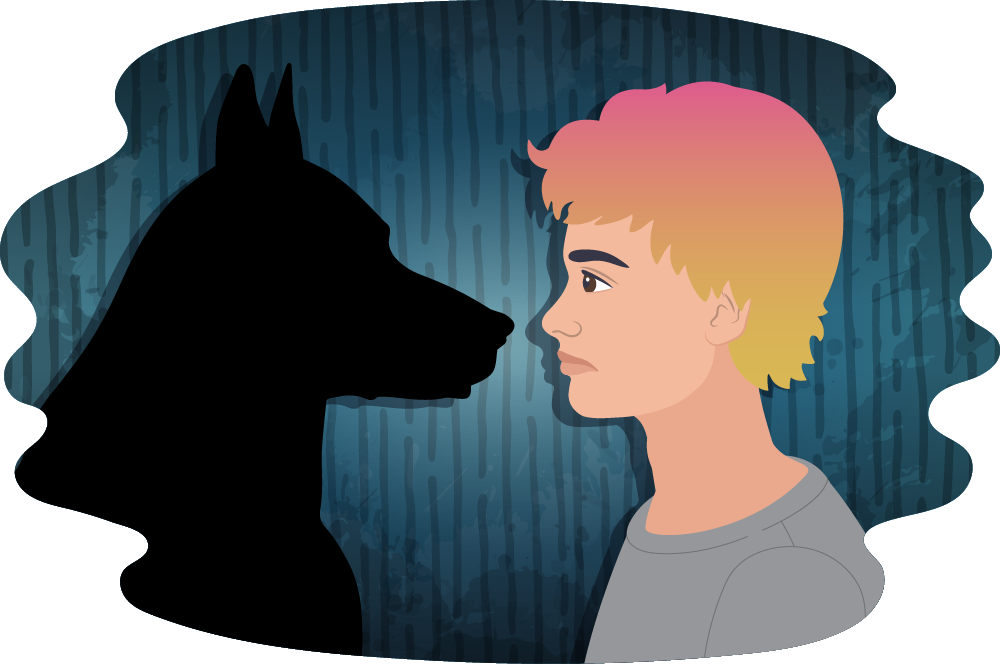All about depression
Depression is more than just feeling sad. It's a mixture of thoughts, ...
READ MEDepression can really bring you down, but there are some simple steps you can follow to help you lift your mood and find long-term solutions.

Your GP can talk to you about your options, and give you a ‘mental health plan’. They can also run tests, make diagnoses or prescribe particular treatments, such as medication, if needed.
Figuring out the cause of depression is important because it determines prevention and treatment.
Depression can be a symptom of other health or medical issues, for example, if you had a vitamin B12 deficiency, you would feel low or fatigued.
It’s important to treat the cause, rather than just the symptoms. That’s why you should talk to your GP.
Most people have experienced feeling depressed, but not everybody has a depressive disorder.
Depression can cause changes in the brain that might make it seem like getting help is too overwhelming, or even hopeless. This is called ‘help-negation’.
Research has shown that getting support from someone you trust or a professional often makes a really positive difference for people with depression, even when you don’t think it will help.
Often, medication is used to ‘stabilise’ your moods, so you have the energy and mental capacity to attend appointments with professional supports and start working on other treatment options.
This can be a really helpful start to your journey.
In some studies, and in some people, exercise is as effective as medication in reducing symptoms of depression. This might help for two reasons:
When you do something physical (like go for a run), your brain might interpret this as you either running from danger, or chasing food. As a result, you may find that you feel less down and have a bit more energy.
Your brain releases ‘feel-good’ chemicals like endorphins during exercise, which is our brain’s way of rewarding us for doing things that help us stay safe and healthy.
Feeling flat or down? Sometimes, it's as simple as getting moving!
Medications treating depression (antidepressants) often work by increasing the amount of a brain chemical called ‘serotonin’. Over 90% of the serotonin you have is made in your digestive system.
So this might play a role in explaining why eating a healthy diet is so important in preventing and treating depression.
When it comes to diet and nutrition, there’s a lot of confusing advice. It can be hard to know which ‘self-help’ sources to trust, so we’ve put together this guide to help you.
How to find the best self-help
1. Urban environments are over-stimulating.
Our brain is designed to be easily distracted in order to help us perceive threats and stay safe. There's a lot of information to process in an urban environment. It's like being on a school oval at lunchtime – people running around, talking, etc.
Our brain has to process everything to figure out what to pay attention to and what to ignore. This can be exhausting, especially for those already fatigued from depression.
2. A lot of activities in our day require forced attention.
This is where we have to make ourselves concentrate. We have to constantly stop our mind from wandering or daydreaming and bring our attention back to the task at hand.
Researchers think this may help with depression as a form of distraction. Our brain can’t do too many things at once!
Doing something that puts you in a different state of consciousness (temporarily and safely), gives the focused and thinking part of your brain (prefrontal cortex) a rest. This can reduce stress.
Some activities reduce your amount of focused thinking, e.g. exercise, by letting you use other parts of your brain instead. Some activities can increase your focused thinking, e.g. meditation, which can break you out of a negative thinking loop.
Any of the above techniques might help you change your brain waves and give your thinking brain a temporary break.
There are a number of other simple coping strategies that can help reduce symptoms of depression:
Do things you enjoy
Stay connected with social supports
Be kind to yourself
Practice relaxation
Get creative
All about depression
Depression is more than just feeling sad. It's a mixture of thoughts, ...
READ MEDepression and your brain
There are lots of theories about what causes depression. Let’s explore ...
READ MEDepressive disorders
Most people have experienced feeling depressed, but not everybody has a depressive ...
READ MEFeeling sad and depression
Feeling sad is not the same as being depressed. Sometimes it’s ...
READ METalking helps! We’re here for you.
No problem is too big or too small.
We're here 24 hours a day, 7 days a week